An Exploration of Medical Ethics: Paternalism vs. Self-Determination
VerifiedAdded on 2023/06/03
|6
|1099
|366
Essay
AI Summary
This essay delves into the multifaceted realm of medical ethics, specifically examining the moral arguments surrounding paternalism and the rise of self-determination in healthcare. It begins by defining paternalism and its historical significance, highlighting the traditional doctor-patient relationship rooted in the Hippocratic Oath. The essay then presents the moral arguments in favor of paternalism, emphasizing the doctor's expertise in promoting patient health. However, it critically assesses these arguments, referencing Alan Goldman's objections to medical paternalism, particularly concerning the infringement on patient autonomy and the withholding of information. The essay then transitions to the concept of self-determination, tracing its emergence as an alternative model emphasizing informed consent and patient participation in medical decisions. It explores the legal implications of denying self-determination and concludes by arguing that self-determination is a convincing perspective, allowing patients to make choices based on their values and understanding of a good life, while also acknowledging the limitations of self-determination in patients with severe mental disorders. The essay provides valuable insights into the evolving landscape of medical ethics and the balance between medical expertise and patient autonomy.
1 out of 6
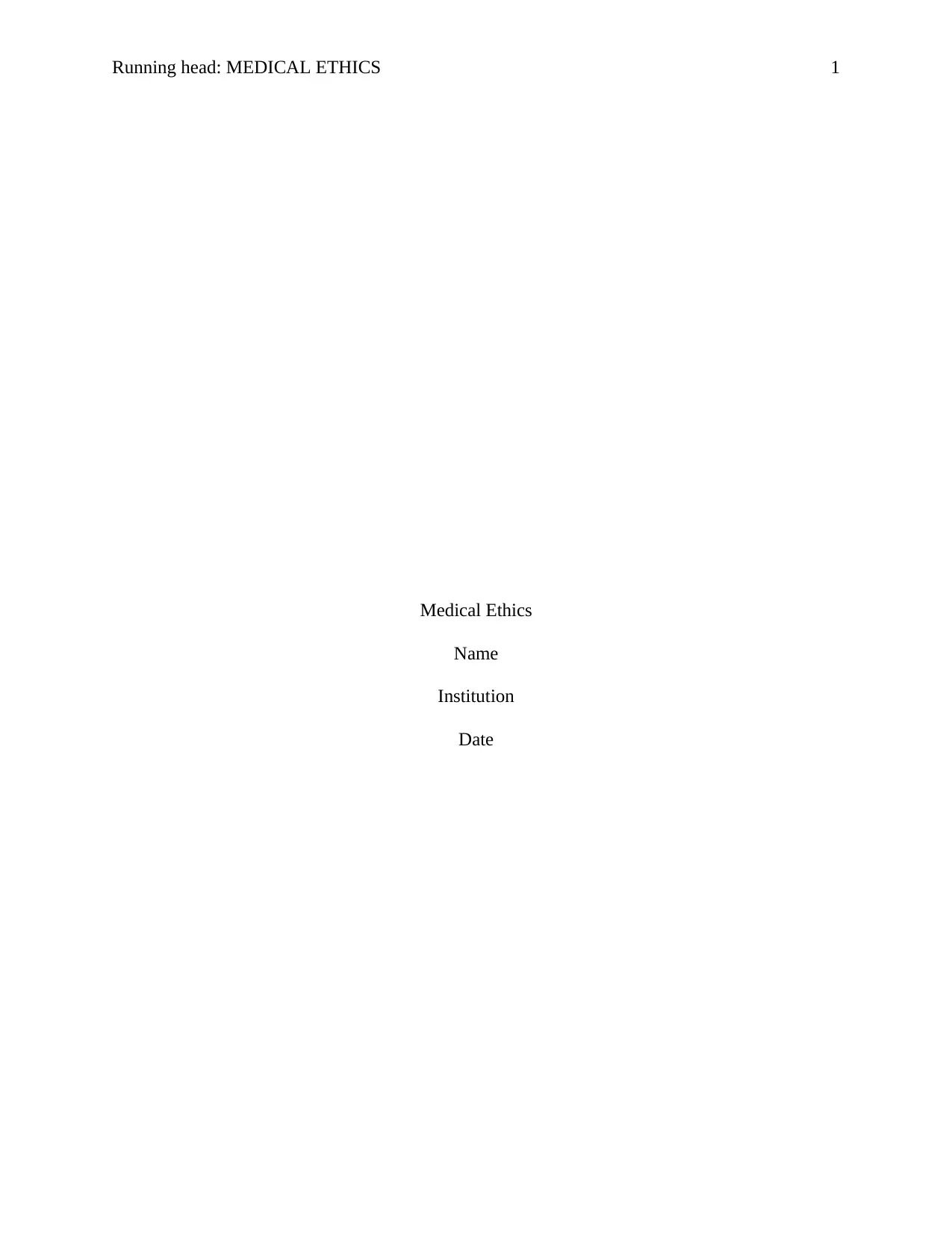
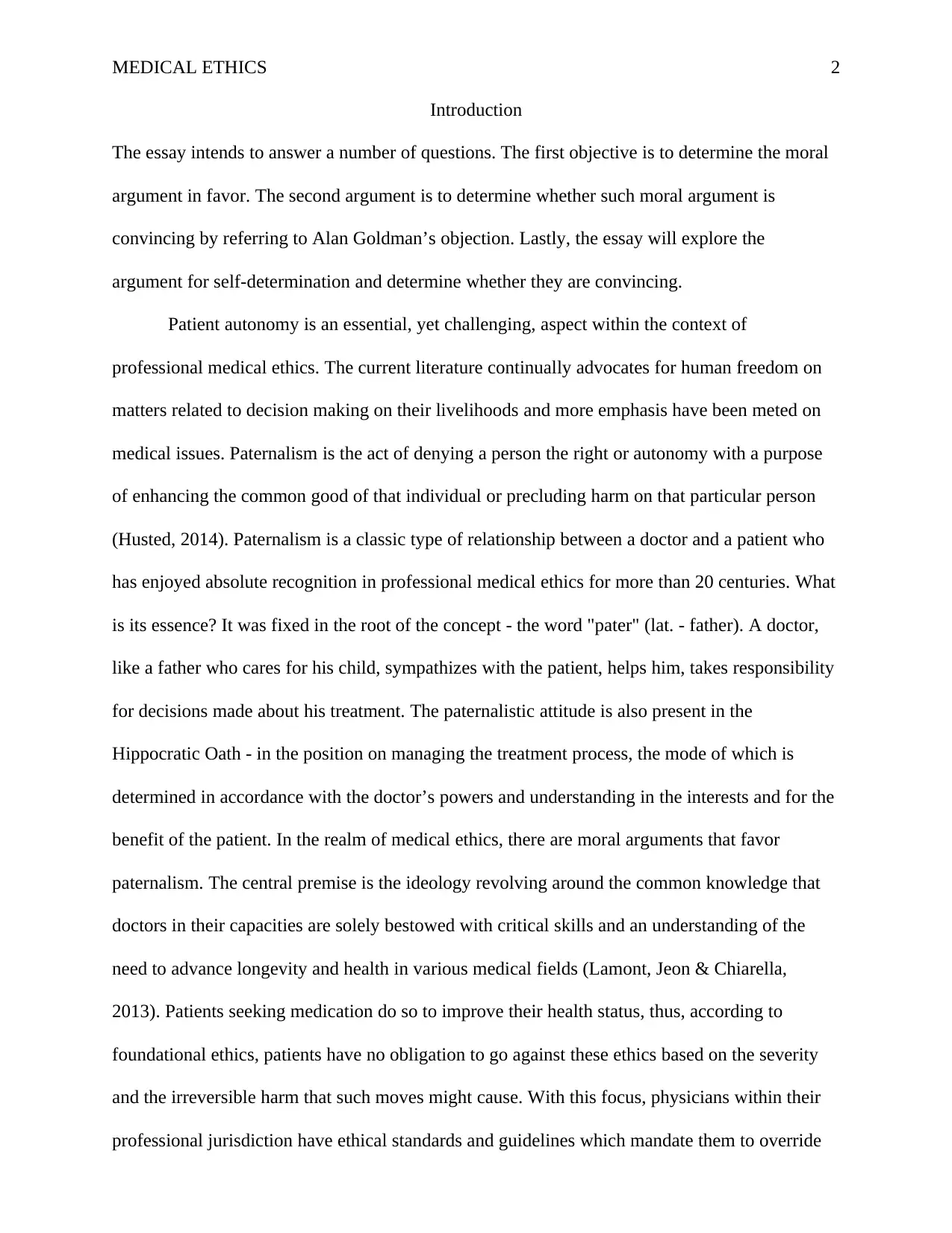
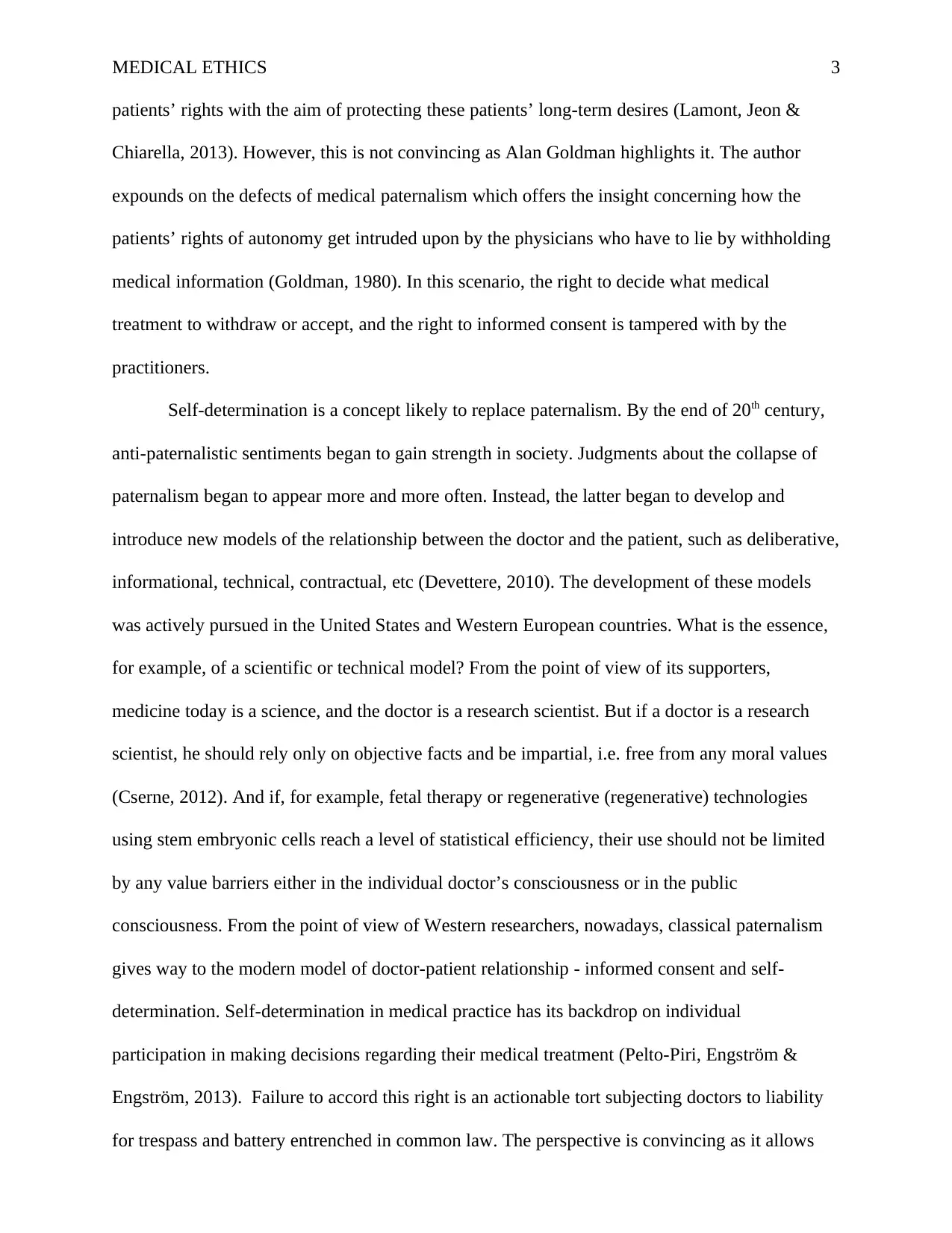

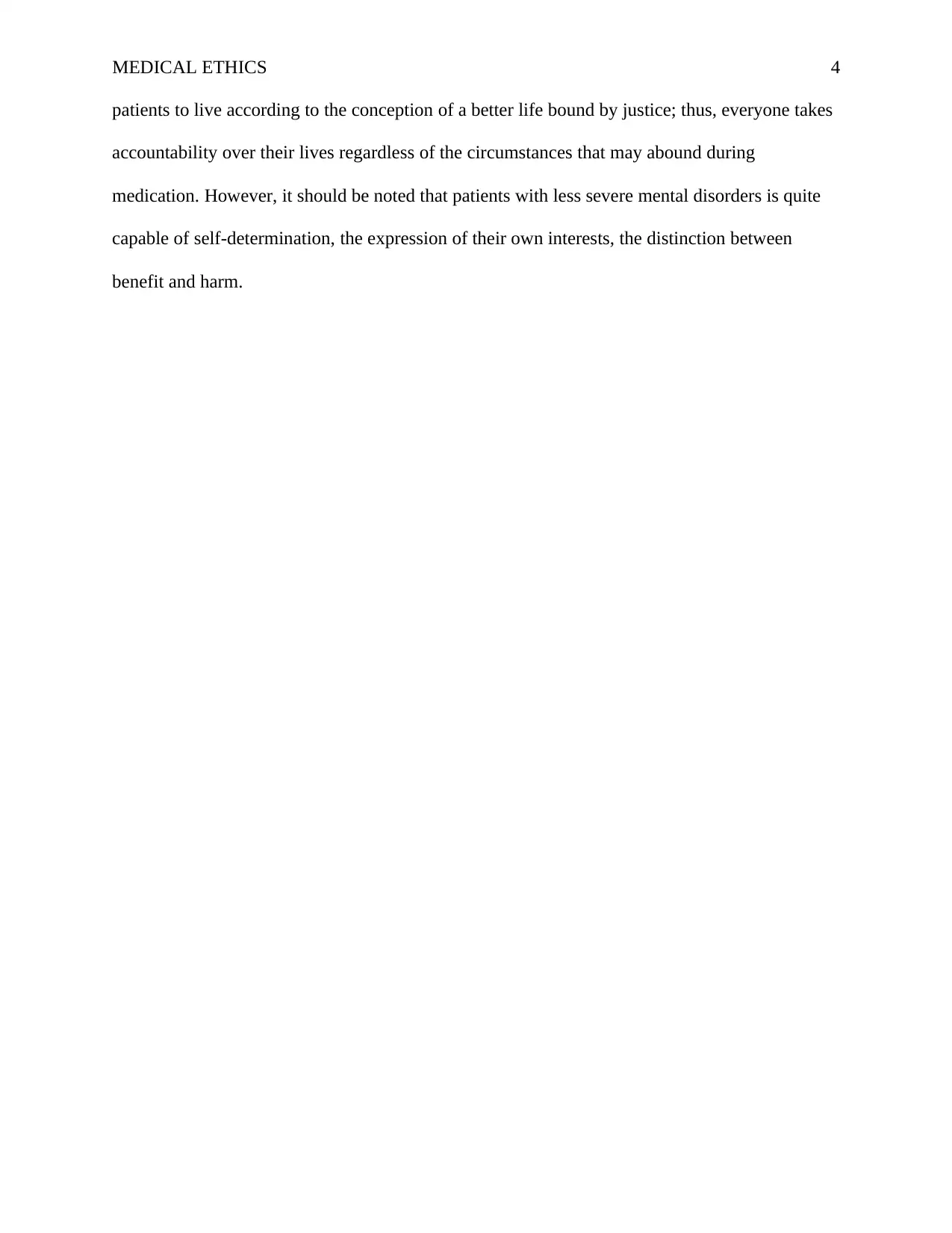

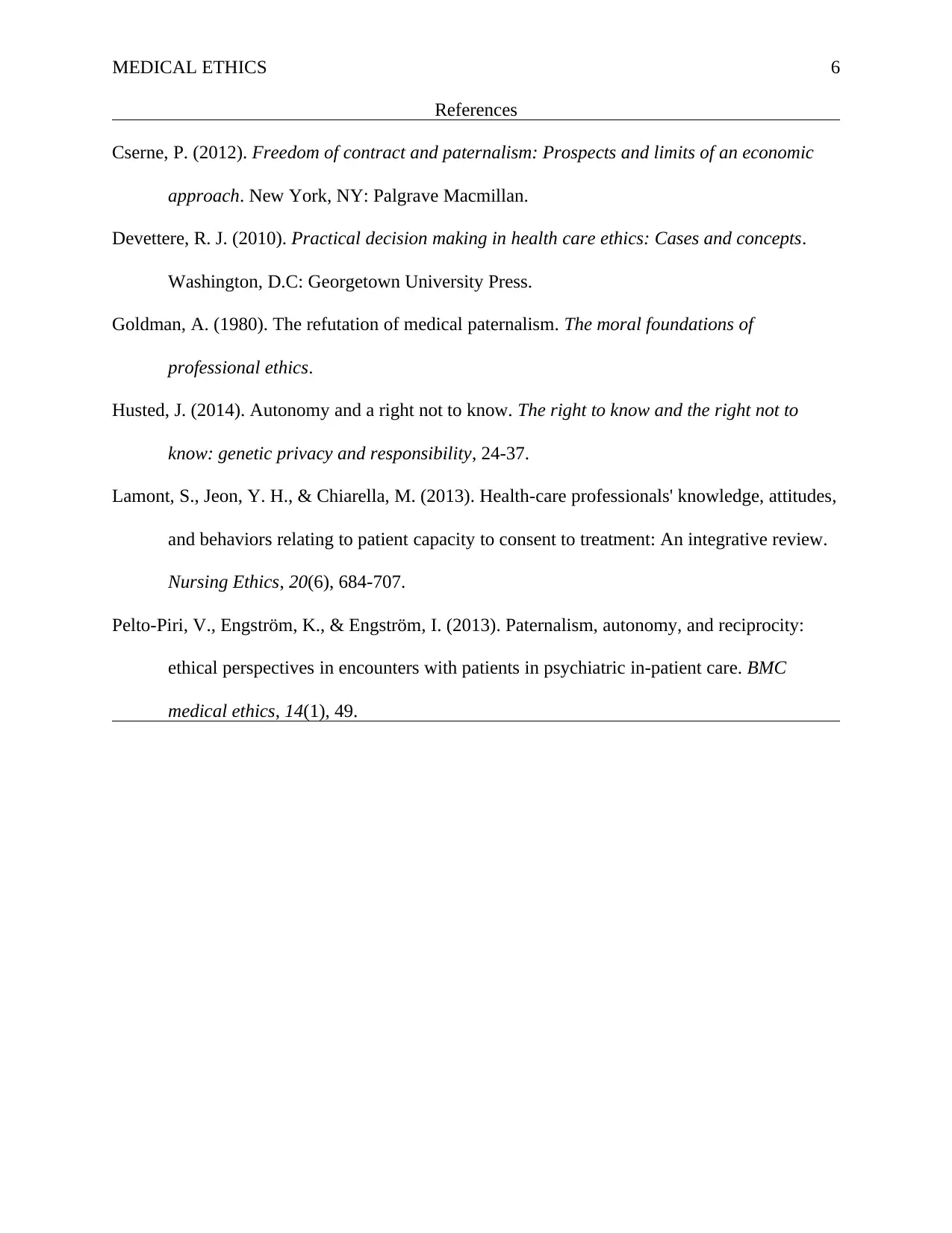

![[object Object]](/_next/static/media/star-bottom.7253800d.svg)